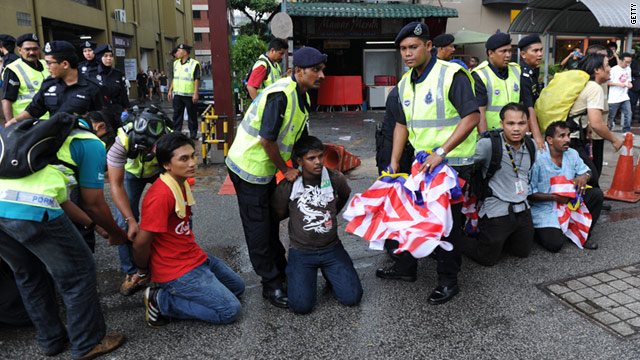By Brianne Yantz
Impunity Watch Reporter, Oceania
WELLINGTON, New Zealand – Earlier this month the Indonesian Navy intercepted a boat containing over 85 Tamil Sri Lankan refugees bound for New Zealand. Many were waving New Zealand flags or holding signs that read “Our future life is in New Zealand,” the New Zealand Herald reported. However, the refugees were detained and New Zealand’s Prime Minister, John Key, publicly announced that the asylum seekers would not be permitted to enter the country.

Key also noted that of the thousands of refugees that seek asylum in New Zealand only 750 a year are accepted. He firmly stated that New Zealand would not accept anyone who did not follow the normal channels. Key stated that allowing the refugees into the country without going through the proper legal channels would promote smuggling. As Key explained to The Telegraph, “if you are going to take this boat, there are just thousands and thousands of other boats which will come.”
Many have since criticized Key and accused him of exaggerating the issue. To his critics, the probability of a mass influx of asylum seekers to New Zealand is not as likely or harmful as Key believes.
According to TamilNet, Keith Locke, the Green Party MP in New Zealand, stated “there is room in our country for more Sri Lankan asylum seekers. In the last 3 years we have not even filled our 750 annual refugee quota.” Locke further argued that Key’s mother was in fact an asylum seeker, fleeing Nazi Germany in 1939 for Britain.
TamilNet also reported that Tamil groups in New Zealand believe that Key’s stance is misguided; Key’s judgment has been clouded by poor advice and hostile propaganda from the Government of Sri Lanka.
The Tamil organizations pointed out that the Tamils in Sri Lanka are currently being suppressed by a military dictatorship and that the nation’s war crimes have received little to no international coverage. Therefore, the lack of public sympathy for the refugees comes as no surprise.
Despite these criticisms, Key has maintained his stance on the issue and the refugees remain in Indonesian custody.
However, one major political figurehead, who is also the leader of the Marumalarchi Dravida Munnetra Kazhagam (MDMK) political party in Indonesia, has requested the refugees at least be set free. According to MSN News, MDMK leader, Vaiko, reportedly wrote to Indonesia’s Prime Minister, Manmohan Singh, arguing that the refugees were not illegal immigrants and “as per International Law, their right to seek asylum cannot be curtailed by Indonesian authorities.”
For more information, please see:
TamilNet – Prime Minister criticized in New Zealand’s parliament over Tamil refugees – July 16, 2011
MSN News – Vaiko wants PM to put pressure on Indonesia to release Tamils – July 14, 2011
New Zealand Herald – PM accused of overstating refugee issue – July 13, 2011
Radio New Zealand – PM criticised over stance on asylum seekers – July 12, 2011
The Telegraph – New Zealand shuts door on Sri Lankan asylum seekers – July 12, 2011



